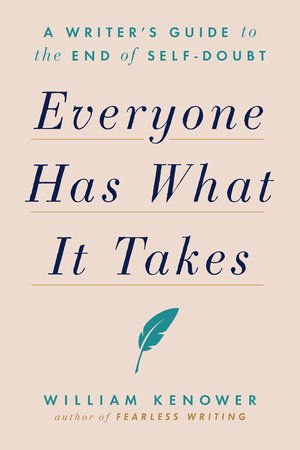Why I’ll Never Tell Anyone They Can’t Write
By William Kenower
I was in a writing class once in which the teacher decided to do a sentence-by-sentence critique of the first of page a student’s story. The teacher had gone so far as to get an overhead projector so she could display the page and her many, many edits of it in a billboard-sized font for all the class to see. The gist of this exercise, as far as I could tell, was that the story wasn’t working at all, but that with some serious line editing it could be resuscitated and given narrative life.
It was brutal. Not one sentence escaped her pen. Every edit came with an explanation for why this word was wrong or that phrase was unnecessary. I didn’t think the teacher was being unkind, but she did seem to be making a bit of an example of the student’s story: This is how not to write. The lesson, after all, was really not about the student’s story; it was about her sentences, her awkward, graceless, inexact sentences.
To be clear, I didn’t think the story worked at all, but I didn’t think the problem lay entirely in its sentences. The story didn’t seem to have a true center, and so I didn’t fully believe in the characters or their struggles. Though the student may have rewritten it many times before handing it in, it felt to me like a first draft, an idea still in search of its true direction.
The student, to her credit, accepted her public editing stoically. I can’t say I would have handled it that well. A few weeks later, the same student turned in a different story. If you had told me she had plagiarized the entire thing I’d have believed you. The voice was distinct, the characters were real, the conflict was compelling, and, yes, the sentences were crisp and alive. This story, about a teenager’s relationship to music, was also drawn largely from her own experiences, whereas the first story, about a runaway bride, seemed more like what she thought an exciting story should be. A year later she published her music story in a literary magazine, and her writing career began.
I can’t say with absolute certainty why this transformation occurred, but based on my own life, I seriously doubt it had anything to do with that lesson in sentence writing. The whole experience, however, was a great lesson for me. Hovering in my mind until that moment was the awful, quiet idea that some people just can’t write. For some random reason they were born without the ability to translate all that is interesting and meaningful about life into words the way some people are born without sight. It’s just how it goes.
I didn’t think I was one of those unlucky people. If you’d asked me I’d have said, “Oh, I can write. In fact, I’m a good writer.” But on some days I wasn’t so sure. Some days I wasn’t sure because another rejection letter had arrived, and some days I wasn’t sure because I hated what I was writing, hated how fake it felt, how dead it felt, and hated how I couldn’t remember ever having enjoyed writing anything. It was all fakery, this writing thing; I was pretending to be something I wasn’t and would never be.
I had a lot more of those days back when I was still trying to write what I believed a story should be, as if that question had been answered by someone else long ago and now I was just following instructions. I had not bothered to ask myself, “What do you think a story should be?” Once I asked that question, and once I got my answer, my writing changed. I was now plugged into something no lesson in craft could ever replace: my own unique, irreplaceable, irrepressible curiosity.
In fact, even though it’s been many years since I asked and answered that question, and even though I have been diligently honing my craft since I was a teenager, if I begin a story before I have found why I am so curious about it, I soon feel as if I have forgotten how to write. Everything I put on the page sounds like me, and yet none of it is alive or real. I feel like a fraud all over again. This happens simply because I have forgotten that I have to ask myself why I am interested in telling a story every single time I sit down to write. It’s a step I simply can’t skip.
I’m a teacher now, and while I have read some pretty unfocused stories, stories filled with clichés and scenes that go nowhere, I’ll never tell anyone they can’t write. I will tell my students they can’t write unless they’re plugged into their curiosity, I’ll tell them they can’t write my story or their best friend’s story, but I won’t tell them they simply can’t write. It would be like telling them they can’t fall in love. If you’re alive, you’re curious about something, and if you’re curious about something, you’ve got the beginning of a story. The question is not whether you can write, but whether you will write the story you want and were meant to write. Those are the only stories anyone can write.
William Kenower is the author of Everyone Has What It Takes: A Writer’s Guide to the End of Self-Doubt, Fearless Writing: How to Create Boldly and Write With Confidence, and Write Within Yourself: An Author’s Companion, and the Editor-in-Chief of Author magazine, and host of the podcast Author2Author. In addition to his books, he’s been published in The New York Times, Writer’s Digest, Edible Seattle, Parent Map, and has been a featured blogger for the Huffington Post.


